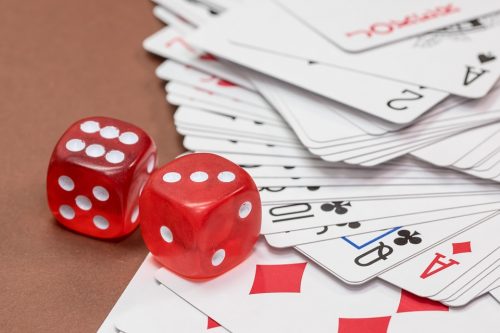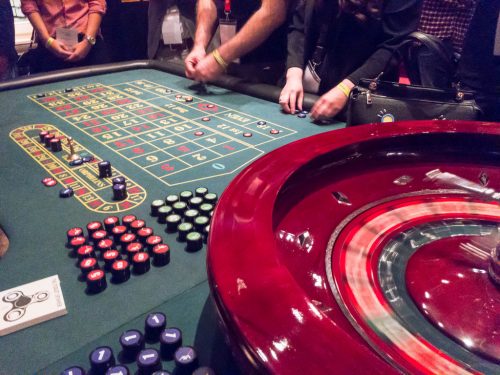
Source: pixabay.com
When your teen’s poker face is no longer working, it’s time to seek out medical advice.
Opportunities to instantaneously gamble is set on a general, digital level that it can easily be accessed by anybody, primarily by teens. Reiterating and thoroughly explaining to your children the insidious effects of gambling will efficiently influence them with the ideation that addiction starts when recreation stops; thus the consequences will arise. “A parent’s attitude about gambling can affect a child’s attitude about it.” says Emily Mendez, M.S., EdS., a mental health expert who specializes in addiction and substance abuse.
The Tricks Of Juvenile Gambling
Unbeknownst to parents who trustworthily allow their children to explore and expand their horizons, teens are becoming more acquainted with the deception of the easy gambling. At first, it’s just an innocent game of touch and goes. That’s how gambling works – easy as pie.
Complications arise with a simple free game escalating to a trickier one with higher stakes at risk. But the awful reality is, the chances of winning in gambling is similar to asking for one day of rain amidst a month-long drought.
In gambling, winning is everything and losing is just part of the game. Psychiatrist Giorgos Floros stresses that “the pressures of the crisis have also played a pivotal role in the spike in gambling, particularly among adults.” As kids become exposed, they find more ways to win notwithstanding the loses. The more they get involved, the harder it is for them to stop. Soon, gambling will be another insatiable activity that can only be quenched by winning and winning alone. Often, addiction to gambling has gotten so bad that teens are forsaking everything that matters – studies, grades, friends, and family – so that they can go on with their vice.
How Juvenile Gambling Occurs
Pathological gambling happens as early as ten years old. Some of the most common types of gambling activities that teens engage in are lottery tickets and card games. Though parents may find this as a harmless endeavor because it rarely occurs, it does not discount the fact that kids are becoming more and more aware of the satisfaction in winning quickly at a minimal price. The horror starts as soon as these kids have experienced the sweet taste of bagging in some amount of money after several tries.
The internet provides children access to anything and everything, most especially gambling. The reality that internet gambling sites are sloppier than their casino counterparts in filtering participants allows easy access to underage children who usually fake their identities to log in.
Recently, there have been numerous deceiving gambling apps that require no money to play. But then, in the midst of losing “free coins,” hooked teenagers are faced with the dilemma to take their parents’ credit cards just to continue their so-called pastime. The moment this happens, parents have to be prompted that their teens are becoming more infatuated with their pastime’s duplicitous impact.
Spotting The Gambler

Source: flickr.com
Unlike adult gamblers who end up losing everything, juvenile gambling is somehow controlled due to the reality that teenagers have limited resources to sustain their addiction. Still, the moment the habit has taken over your teenager’s head, they result in bad behavior like stealing.
Aside from that, here are a couple of red flags to watch out for when spotting the gambler in your children that may prompt professional help or counseling:
1. Questionable Money
Abrupt changes in how much money your teenagers have or how often they become short of money are some of the primary indicators that your children have a gambling problem. Though it might not always be the case because there are tons of reasons why your children might be having cash deficiency, gambling is high on the list. Also, if you find out that your child has been borrowing or asking for money from friends and family, it is most appropriate to confront your child about this.
2. Mood Change
It has already been established that gambling is an addictive pursuit; therefore, the brain will always yearn for the high it brings when playing. Your teens will eventually manifest changes in mood, sleep pattern disturbance or insomnia, lethargy, and irritability when called out about their habits.
3. Poor Performance
When a straight-A student becomes a C-student, one of the most probable reasons would be his or her engagement with gambling. Aside from grades, withdrawal from school activities and events are also indicators of an insidious, pathological gambling problem. The moment a specific habit turned addiction interferes with the normalcy of life, that’s the moment that counseling is considered.
Act Before It Worsens
No matter how you put it, gambling is an addiction. “Addiction to gambling has many common characteristics with addiction to alcohol and drugs,” explains Antonis Parios, a Greek psychotherapist. Though gambling may not be drugs, it still can influence your teens’ brains in ways similar to drug addiction. If gambling during adolescence is not appropriately addressed, it will evolve into an addiction problem during adulthood.
If you think that your children are becoming more receptive to online gambling, no matter how harmless it may seem, you have to communicate with them about the long-term consequences. On the other hand, if the problem has gone out of hand, you always have the option to seek guidance and professional help for the sake of your teen’s gambling habits.
